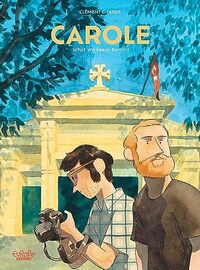The Great Transition by Nick Fuller Googins
 Friday, August 25, 2023 at 7:05AM
Friday, August 25, 2023 at 7:05AM 
Published by Atria Books on August 15, 2023
This will be a mixed review, but the positives outweigh the negatives. At its best, the novel illustrates the desperate measures that Americans will need to take to survive global warming after the climate reaches a tipping point.
The story’s most interesting and dramatic moments come from flashbacks to the way communities responded to the Crisis. Coastal cities are flooded, the Everglades are underwater, hurricanes have devastated the Gulf states, forests are constantly burning, the South is too hot to inhabit. Voters who have had enough elect politicians who begin the Great Transition. Serious efforts are finally made to eliminate carbon emissions after workers are organized into Corps that labor to protect the nation from fires and flooding while cleaning up the mess. Presumably the climate change deniers decided to stop fighting progress at some point along the way.
The new politicians, like the old, favor the interests of the wealthy — the people whose greed caused the Crisis — by assuring that they receive more protection and benefits than everyone else. A people’s revolution ultimately causes the Transition workers, spurred by Phoenix Company, to go on strike and then to organize self-governing worker cooperatives, making decisions that are best for everyone, not just for the ruling class. All of this is more interesting than the story that unfolds in the present.
As the novel begins, the Crisis is abating. The Transition ended sixteen years earlier. The new challenge is to restore prairies, rivers, woodlands, and other ecosystems so that wildlife will have habitats that will allow species to multiply.
Those who knowingly profited from carbon emissions have been branded as “climate criminals” but they have never been punished. Members of a group known as the Furies, an apparent offshoot of Phoenix Company, are hunting and assassinating climate criminals. There are obvious parallels between the American ruling class after the Crisis and the aristocracy after the French Revolution. The novel’s moral theme asks whether retributive justice — assassination as vengeance, with no formal charges or opportunity to present a defense — is actually justice. Apart from moral issues, the characters learn that, in practice, vengeance triggers retaliation.
The protagonists are a husband and wife (Larch and Kristina) and their daughter Emi. Kristina and Larch worked to facilitate the Great Transition. They met while fighting a fire to save at least some of Yosemite. Kristina became the face of Phoenix Company. Larch was in a reality TV show featuring members of the Forest Corps. Now he works for a WNBA team.
Emi views her mother as a hero while others view her as a criminal. A terrorist attack on Zero Day (celebrating the net-zero emissions anniversary) nearly kills Larch and Emi. Why the Furies would want to place people at risk who are celebrating environmentalism is unclear.
Kristina calls to warn Larch just before the attack, but how did Kristina (who is supposedly in a different state on a volunteer mission) know the attack was coming? Two agents from Public Security soon arrive to question Larch and Emi, but are they really from Public Security? Is Kristina innocent or a terrorist? Clearly she isn’t anywhere in between, because the characters have little nuance.
When Kristina doesn’t respond to messages, Larch and Emi go looking for her. Most of the adventure/action in the plot concerns the attempt Larch and Emi make to locate Kristina while evading the authorities (or whomever). Nick Fuller Googins mixes in a large dose of domestic drama as Kristina and Larch argue about the impact their political/lifestyle beliefs have upon their family obligations. Both characters are a bit self-righteous, as people tend to be when they quarrel about domestic or political issues. Unfortunately, the arguments seem like constructs to advance the plot rather than actual disputes between marital partners. Their parenting quarrels (“I taught her to be strong” vs “I let her be a normal kid”) become tedious. I suppose readers can decide which parent they like better, or which parenting philosophy they would follow, but neither parent is a great role model.
Emi is a convincing teenager, in that she is smug in her beliefs, doesn’t listen to adults, and is certain of her entitlement. Despite her questionable taste, she considers herself the goddess of rock (mostly pop) history, which she apparently regards as having started in the 90s.
Tearful moments of family reconciliation/resolution are artificial. Call me unsentimental, but some of the “we all still love each other” scenes are just too gooey for my taste. The final resolution of the family dynamic and Kristina’s precarious situation is a cop-out.
Firefighting scenes are exciting. The revolutionary solution to the Crisis is intriguing. The rest of the novel is best seen as a forgettable excuse to delve into a fascinating backstory.
RECOMMENDED



